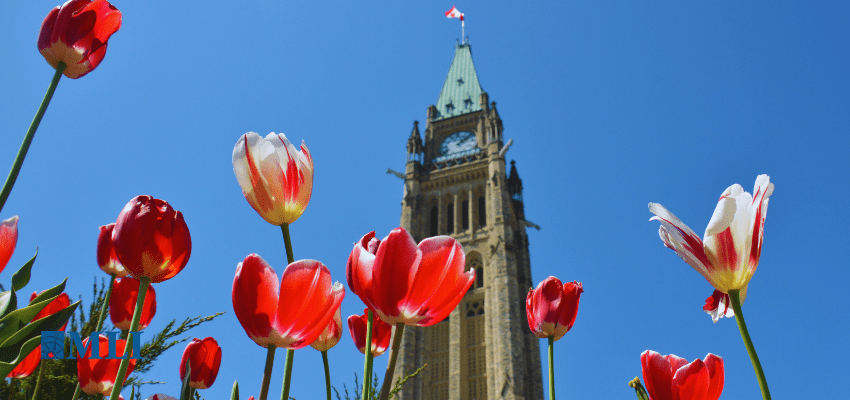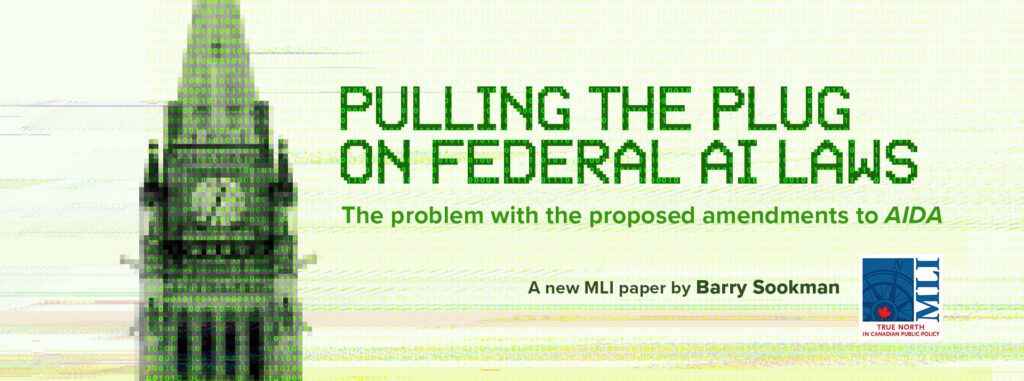This article originally appeared in the National Post.
By Christopher Dummitt, July 15, 2024
The American Democratic party and the Canadian Liberal party both have the same problem: how to get rid of a leader who ought to know enough to resign on his own?
It’s anyone’s guess if U.S. President Joe Biden will step aside. But the Canadian Liberals should have an easy solution: if they could only remember that we live in a British-style parliamentary democracy, they could be rid of their Justin Trudeau problem.
Nearly nine years since the Liberals took office, Trudeau has led his party so far down the popular approval ratings that even Kim Campbell might feel sorry for him. After almost a year of a consistent and growing Conservative lead in the polls, any sane political party would be looking for a new leader.
It’s not clear that a change at the top would help all that much, but at the very least, it ought to be clear that the party’s current leadership is on life support and very unlikely to regain the ability to breathe on its own.
This ought to be a simple — if vicious — process. Parliamentary democracies like Canada conform to the principle of responsible government. Whichever party holds a majority in Parliament governs. And the parties decide who amongst their numbers will lead them. If one leader won’t do, the other MPs from that party can decide on a replacement. That’s the theory, anyway.
But for years now, Canadian political parties — most notably the Liberals — seem to have tried to get Canadians to forget the British origins of their democracy and to water down the accountability mechanisms, all in the name of American-style republicanism.
It started way back in 1919 with the first party convention to allow delegates to choose a new Liberal leader. Other parties followed suit. The post-Michael Ignatieff Liberals went even further, extending the vote to people who just temporarily thought they might want to be associated with the party — as if party membership was too onerous a burden.
All of this seems democratic on the surface. Yet the effects are woeful.
When leaders eventually screw up — or reach their natural sell-by date — the downside becomes clear. Who is going to tell them to go? In theory — and sometimes in practice — it is party members who send the message at a convention. But conventions are few and far between — and the mechanisms for deciding what gets on the agenda are easily manipulated.
The way it is supposed to work in a parliamentary democracy — in a responsible government — is that members of a party’s parliamentary caucus decide. These are, after all, the representatives of the people and the party in Parliament, who are tasked each day with holding the government to account. Yet leaders can now say that they are voted in by all party members — and in the case of the Liberals, party supporters, as well. How could “elite” MPs interfere?
The victim of this system is accountability. What you lose by bringing more people into the selection process is the ability to hold the party’s leader to account when he or she eventually screws up.
Some other countries still manage to hold onto these traditions. In Britain, Conservative MPs pick their two highest-ranking candidates, and only then open it up to party members to vote. But the best example of parliamentary power is Australia. When party leaders screw up Down Under, the party caucus can declare a “leadership spill” and vote on whether to appoint a new leader. And they do — on both sides of the aisle.
There are frequent calls to “democratize” this process, but what this would mean in practice is that a leader, once appointed, would be harder to remove. Just think of the U.K. Labour party, which was stuck with Jeremy Corbyn for far too long. Labour had “democratized” its leadership selection process and ended up with someone who was popular among party activists, but who didn’t have the support of many sitting MPs. Corbyn was blamed for tanking the party’s chances at power.
In the Canadian case, we have the added element of the now long-drawn-out process of forgetting who we are — of deliberately turning our back on the British origins of our parliamentary democracy. At first, this was meant to appease Quebec nationalists. More recently, this history-denying process has been sent into overdrive.
Any mention of our colonial origins — especially in a positive fashion — is verboten. And yet, we do actually live in a British-style parliamentary democracy, which has mechanisms of accountability built into it. If we actually spent time teaching and commemorating this history — not denying it — we might have some chance to understand ourselves and our democracy.
All of this is connected to the plight of all those poor Liberal MPs currently worrying whether they’ll survive past the next election. The erasure of our history takes us further and further away from the kinds of traditions that could solve the problem these Liberal MPs are facing.
Our parliamentary democracy is good at accountability. Why would we turn our back on what the system is actually meant to achieve: holding unpopular leaders to account?
Whether you loved Justin Trudeau in 2015 or hated him, it ought to be clear to just about anyone across the country today that this is not the man who holds the confidence of the Canadian public right now. The mechanism for holding him to account — for removing him from office — is right there in front of our eyes, if only enough Liberal (and NDP) MPs could see it.
Christopher Dummitt is a historian of Canadian culture and politics at Trent University and a Senior Fellow at the Macdonald-Laurier Institute.







